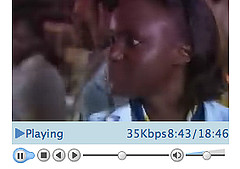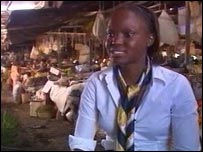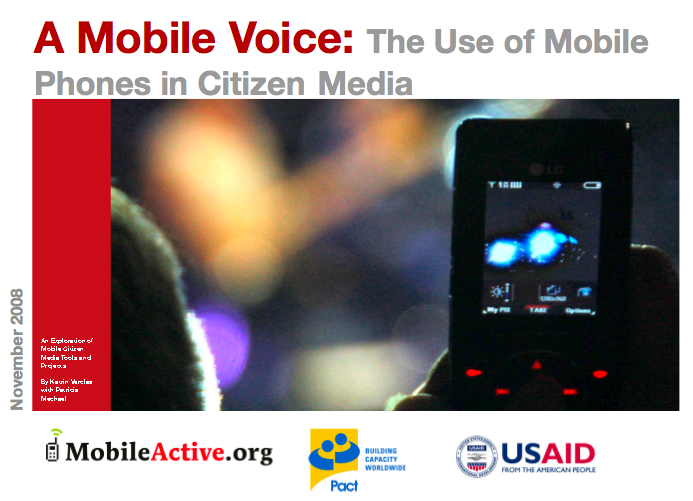 An amazing article yet again on mobiles in Africa by the BBC. Paul Mason in his two-part series writes about the economic impact of mobile phones, but more importantly, about how mobiles are transforming local politics.
An amazing article yet again on mobiles in Africa by the BBC. Paul Mason in his two-part series writes about the economic impact of mobile phones, but more importantly, about how mobiles are transforming local politics.
"With one in three adults carrying a cellphone in Kenya, mobile telephony is having an economic and social impact whose is hard to grasp if you are used to living in a country with good roads, democracy and the internet. In five years the number of mobiles in Kenya has grown from one million to 6.5 million - while the number of landlines remains at about 300,000, mostly in government offices. I decided to make a journey through Kenya to gauge the impact on the ground: the plan was to go from Mombasa via Nairobi to Lake Victoria following the mobile network map - contrasting life on the network to life off it."
He descibes attending the launch of Safaricom's m-pesa-- "...simply an extra line on your mobile phone menu that says: "Send Money". You go to an office, transfer funds onto your phone account, and then send them to your friends, or family, or anybody else with a mobile. Then, they go to an office, show the code on the mobile and some ID, and collect the cash."
Revolutionary for the remittance industry of migrants sending money back home; an industry that is currently dominated by high-fee quasi-bank institutions like Western Union. And hence - since this is a 100 billion transfer of money -- revolutionary for economies where banking is not the norm.
In part two of the series, Mason really gets to why mobiles are so endlesslessly fascinating for people who care about social change and a more equitable world: the way in which mobile phones enables local political activism.
He writes: "... It's Africa's biggest slum, with about 800,000 people living in streets that are effectively composed of sewage and old shoes.
I should not call it a slum, says Marcy Kadenyeka, a community organiser in Kibera for the Nairobi People's Settlement Network. When the residents of Kibera came together last year, it was the first time people from shanty-towns around Nairobi had properly linked up beyond their local issues.
They came together to fight evictions. The street theatre Marcy took me to in Kibera tells the story of what usually happens. A rich guy in a white cap comes along and buys the land, then he goes to the local chief and "gives him something for his breakfast".
At this point the crowd of about a thousand Kibera people watching the play burst out laughing. "And my dinner, and my supper!" says the man playing the local chief - and the laughter of the audience gets raucous.
 June Arunga: Mobiles show the way forward |
So what the Nairobi People's Settlement Network did was use mobiles and the internet to get organised against evictions. They used what we would call flashmobbing to call people from across the many different and rival settlements together where big evictions were planned, and threatened to sit down in front of the bulldozers.
It has not been completely effective, since the bulldozers simply wait a few days - but it is starting to change the dynamics of grassroots politics. In Kibera most ordinary people can't afford mobiles instead they use the community mobile service, Simu Ya Jamii, which has been partly developed by the GSM Association, the world industry body for mobiles.
Most of the activists do have mobiles and they use texting when they are out of talktime. And, says Marcy, it's breaking down the usual arrangement between movements like this and the political elite.
Normally a politician arrives, promises stuff, fails to deliver and if you ask questions "you are seeing him face to face, backed by his goons," she shrugs.
"Now we have information we don't have to be dependent on patronage of the politicians - we can question them and be more independent," she says."
He ends with these words:
"The Masai kids who waved me off from their village are part of Africa's first digital generation. To the north lies the old Africa of war, poverty, flood and famine - and one technology alone will not eradicate that. But giving ordinary African people more power, and a bigger voice will - and my journey left me in no doubt about the power of the cellphone to do that."
This is what makes us get excited here at MobileActive and to do our small part in documenting this monumental shift as we are tipping rapidly towards new paradigms of political power and economic development.
The video is here - watch it.


Post new comment